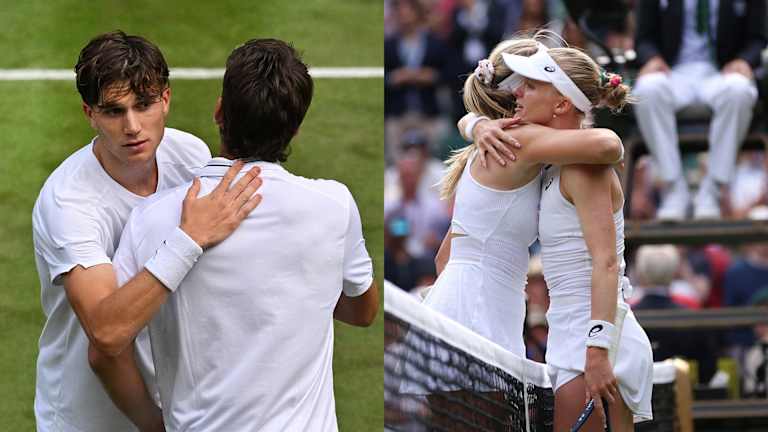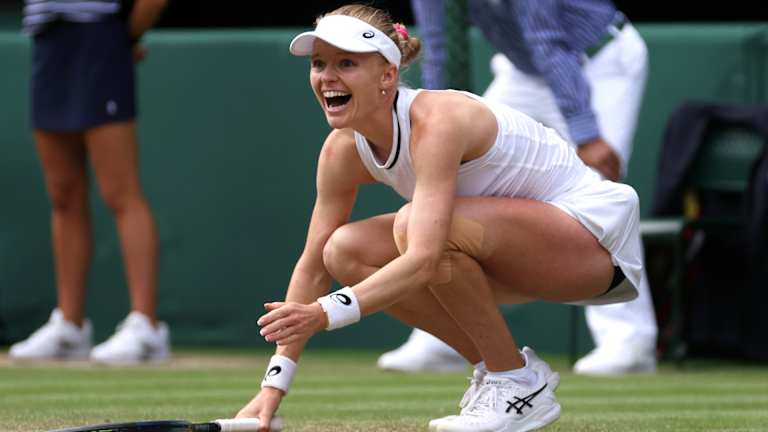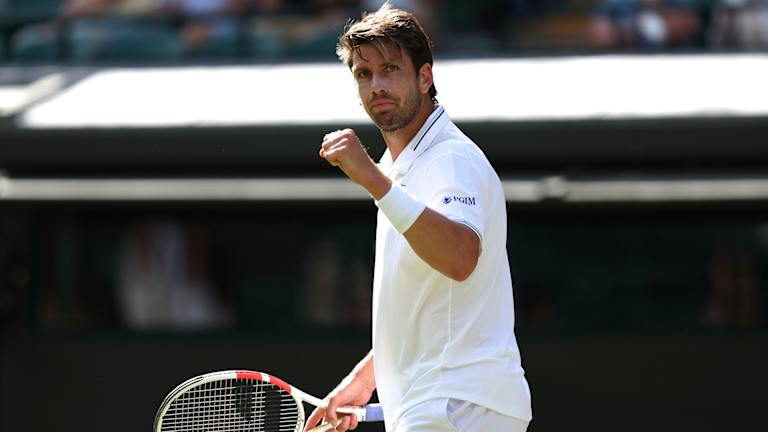It’s rare to see a doubles match on Centre Court during the first week of Wimbledon. But it’s not every day you say good-bye to the best player your nation has seen since the stylishly Slam-winning days of Fred Perry himself. On Thursday, that player, Andy Murray, joined his brother, Jamie—himself a two-time Wimbledon mixed champion—for an elegiac late-afternoon spin through the old stadium, and a tribute led by Sue Barker afterward.
But Thursday wasn’t all about the past at the Championships. This was a Brit-centric day all around. It was fitting that, at the same time Murray was beginning his farewell tour on Centre Court—he’ll play at least one more mixed match with Emma Raducanu—four of his putative successors were doing battle against each other on the other show court, No. 1. Katie Boulter and Harriet Dart, the No. 1 and No. 2 British women, respectively, went first. They were followed by Jack Draper and Cam Norrie, who are also No. 1 and No. 2.
Read More: All the feels! Sophia, Edie Murray watch dad Andy in farewell Wimbledon with uncle Jamie
Maybe the pressure of defending the top spot in front of the home folks was too much, because in both cases the lower-ranked player triumphed over the higher. One of the matches was a lesson; the other was internecine warfare.
The war came first. Boulter and Dart are both 27, have being competing for years, and are Billie Jean King Cup teammates. Boulter has had the better career, and the better of their rivalry. She was 6-1 against Dart coming into this match, and ranked 71 spots higher. Their relationship has been described as “frosty,” as relationships between lifelong competitors can be.


